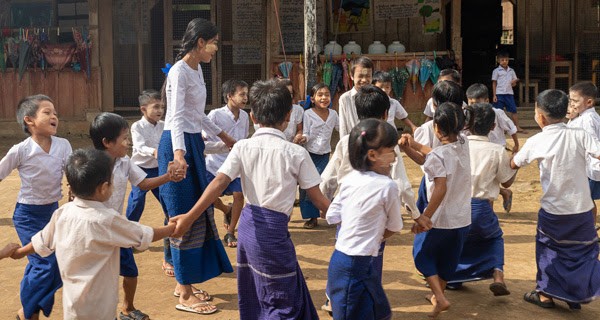Speeches Shim

OVERVIEW
USAID supports Burma’s democratic transition, advancing efforts to develop a more inclusive, open, and peaceful society, and strengthening institutions to promote human rights, good governance, and the rule of law.
USAID supports people of all ethnic groups to advocate for peace, reduce inter-communal tensions, and adopt reforms consistent with international norms, supports legal and regulatory reforms that advance fundamental freedoms and human rights, and strengthens civil society and media organizations to operate independently.
Strengthening Democratic Institutions & Processes
USAID supports credible, inclusive, and informed elections and is providing technical assistance to political parties, civil society, and the country’s electoral commission to carry out national and regional elections in 2020. As political parties prepare of national and state and region elections, USAID programs support efforts to build the leadership and campaign skills of party activists, especially women and youth. USAID also works with Burma’s judiciary, law officers, and the Anti-Corruption Commission to improve the administration of justice, mitigate and reduce corruption, and improve the rule of law.
USAID promotes democratic transparency and accountability through support to Burmese civil society and independent media. Taking advantage of space that has opened since the transition towards democracy, USAID supports efforts to advance democratic reform priorities including peace, justice, human rights, environmental governance, land rights, rights to information, freedom of expression, and civil liberties. USAID works with independent media to increase the availability of credible information on social, political and economic issues.
Improving Governance and Supporting Peace
USAID is advancing human rights across the country through advocacy with key decision-makers, while also assisting communities and civil society to mitigate conflict, support formal and informal peace processes, and improve local governance. USAID is working through communities, civil society, and village leaders to ensure that delivery of local health and education services is more responsive and accountable to local needs and priorities, and that services are delivered equitably, which reduces inter-ethnic tensions in areas prone to conflict.
KEY RESULTS from FY19
- More than 40 CSOs engaging with communities on peace process, intercommunal harmony, religious freedom, ethnic inclusion, human rights, and women’s rights
- The Union Election Commission (UEC) is preparing for the 2020 elections through consultations with civil society and political parties at the State and Region level
- The government is widely sharing a USAID-funded survey on peoples’ perceptions of corruption and rule of law to inform ministries and develop approaches to reduce corruption at the local and national levels
- Civil society and political parties are applying knowledge and technology solutions from USAID workshops to participate in legal reforms, advocacy, and to counter hate speech
- Locally owned media, including outlets in ethnic minority areas, have increased production of independent information about issues important to the public such as land reform, natural resource management, and ethnic rights
- USAID is supporting civil society to inform and encourage five million new voters to participate in the 2020 elections
USAID IS COMMITTED to supporting the people of this country in their pursuit of democracy, inclusive economic development, and national reconciliation


Comment
Make a general inquiry or suggest an improvement.